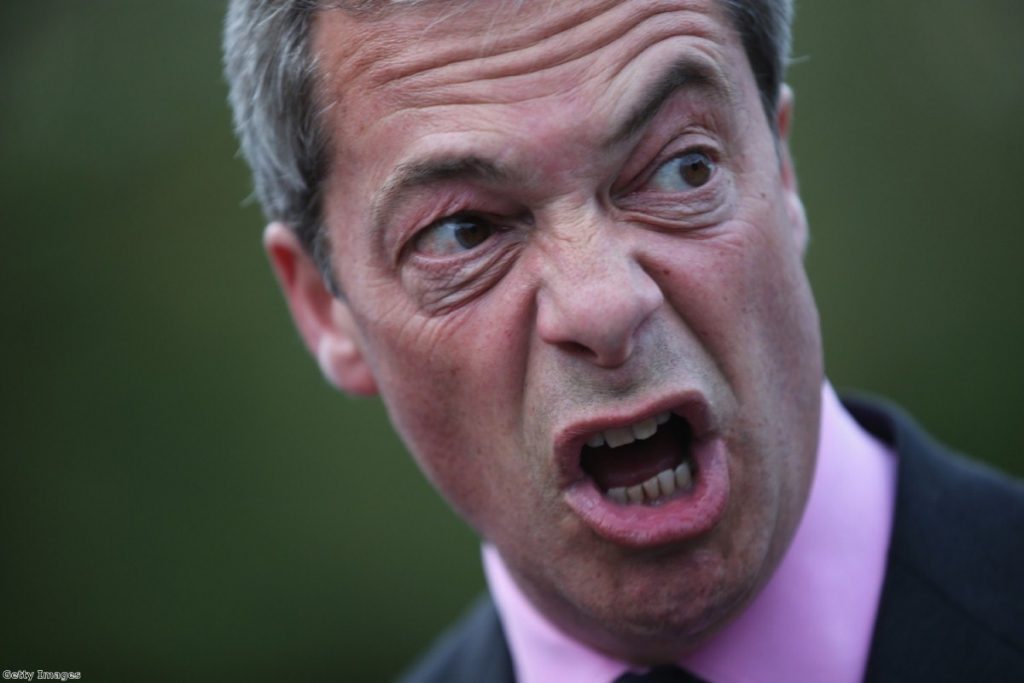Unpicking the secret of Nigel Farage’s appeal
By Richard Newman
Despite heavy criticism of Ukip and its leader, Nigel Farage seems to be gaining in both momentum and popularity. So what is it that makes him appealing? To many he may seem repellent in his beliefs and his manner, but others are drawn to him. If you put politics to one side and simply analyse his communication style, you can begin to understand why.
We often tell clients that there are very few 'rights and wrongs' in the way you use your body language and voice. In one situation your style may be useful, in another it may work against you. If you want to be more effective as a communicator the main target you need to focus on is how you want people to feel. You can then aim all of your verbal, physical and vocal choices towards this achieving this goal. This will allow you to be appear more compelling.
I am sure you will have heard of Albert Mehrabian's study. It is one of the most misquoted and misunderstood studies of our time. In it, the evidence showed that 93% of communication is non-verbal. However, Mehrabian has repeatedly said in interviews and stated in books that this only applies to two areas: congruency and feelings. When there is a lack of congruency between the words and body language we are compelled to believe what we see, not the words. We also rely heavily on non-verbal communication to understand how someone really feels.


The most powerful and engaging speakers have total congruency between their words and their delivery, plus they engage our emotions as well as our minds. We believe that they mean what they say and they evoke strong feelings in us. Those feelings can be either good or bad.
This leads us to Farage. Simplistically, you could say that his party stands for frustration. Its supporters are frustrated with the way the country is run and are determined to change it. They attract voters who feel the same way. In order for this to work they need a spokesman who embodies the feeling of frustration and harnesses that emotion in his listeners.
So, let's take a look at Farage's style at his recent party conference speech. There's several distinct elements on show.
Try this out if you can. Firstly, try rocking backwards and forwards. Then hold your hands in front of you, palms facing upwards, as if you are holding two heavy rocks. Then nod your head strongly as you rock forwards. Finally add tension into your voice. By doing all of these you will appear highly frustrated. This creates an exaggerated version of Farage's communication style. Most of the time this approach would be a poor choice, but in his situation it embodies his message. He looks, sounds and feels annoyed with the way things are. For the people who also feel this way he has become a beacon.
When you look at many politicians it can be difficult to understand how they want you to feel precisely because they have an overly controlled style. They lack congruency and do not speak with passion, therefore they lose our interest quickly.
Of course Ukip's policies and politics may make you angry or passionate by themselves. The party leader's communication style will either water this down or fire this up. You can see evidence of this in Ed Miliband, whose speaking style has meant that even strong Labour supporters are feeling less enthused about the policies he speaks about. He lacks congruency with his message and so he loses connection with his audience.
If you feel frustrated by UK politics you may be drawn towards Farage and Ukip. If you feel frustrated by the party and the man, perhaps you now have a clearer understanding of why he creates such strong feelings in you and in others.
Richard Newman is the director of UK Body Talk Ltd, specialists in communication skills for leaders
The opinions in Politics.co.uk's Comment and Analysis section are those of the author and are no reflection of the views of the website or its owners.









